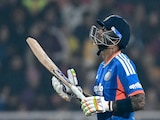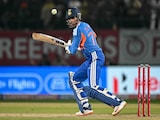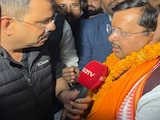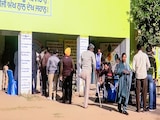The Nilgiris Lok Sabha constituency, one of the 39 seats of the southern state of Tamil Nadu, boasts of a rich political history. The Congress has won from this constituency seven times, including its inaugural win by C. Nanjappa in 1957.
Nilgiris KYC
Diverse Representation
Spanning Coimbatore, Nilgiris, Erode, and Trippur districts, the Nilgiris constituency comprises six assembly seats. While the AIADMK is dominant in four of these seats, the Congress and DMK control one each, led by MK Stalin.
Nilgiris MP
Notable Leaders
R. Prabhu is the longest-serving MP from here, securing the seat for four consecutive terms from 1980 to 1991, and a subsequent victory in 2004 under the Congress banner. He was a cabinet minister in the Rajiv Gandhi government. Master Mathan of the BJP won twice from this seat.
S. R. Balasubramaniam who won in 1996 as the candidate of Tamil Maanila Congress, became the Union Minister of State for Personnel Public Grievances and Pensions Ministry of Parliamentary Affairs. He served as the leader of the opposition in the Tamil Nadu Assembly from 1991 to 1996. He is the current Member of Parliament in Rajya Sabha on behalf of AIADMK.
The seat has been in the hands of Congress for seven terms. Apart from that DMK held the seat for three terms, Jaylalitha's led AIADMK held the seat for two terms with BJP following the suit for two consecutive terms and for one time by Swantantra Party represented by M.K. Nanja Gowder in 1971.
Nilgiris Turnout
Current Landscape
A Raja, a senior DMK leader and former Union Minister, currently holds the seat. He won in 2009 and 2019 from the seat. Mr Raja's political journey has been riddled with controversy, notably the 2G Spectrum scam.
Raja was first elected to the Lok Sabha for the first time in 1996 and was deputed as the Minister of State, Rural Development which he continued to retain the post till 2000. In 2001, he was deputed as the minister of state for Health and Family Welfare during the National Democratic Alliance. In December 2003, the DMK pulled out of the alliance and Raja resigned his minister's post along with his other DMK colleagues. He continued with the same ministry after the 2004 elections which were won by the Congress-led alliance, which included the DMK.
Nilgiris Trivia
Electorate Composition
The electorate of Nilgiris exhibits a balanced mix, with 52% rural voters and urban dwellers at 48%. Hindus represent 90% of the population, followed by Muslims at 5%, and other communities constitute the remaining 5%. Scheduled Caste (SC) voters account for 24.8%, while Scheduled Tribes (ST) constitute 3.3% of the electorate.















